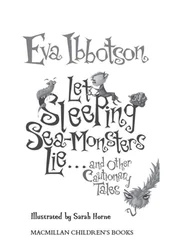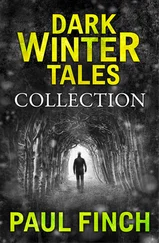It was almost noon. They had been walking since sundown.
Judith slipped on her goggles and scanned the grey skies for navigation satellites. She found three radar beacons within range. A utility accepted their input and calculated her position: less than a hundred miles from Philadelphia. They’d made more distance than she’d expected. The empathic function mapped for her the locations of her party: three including herself, then one, then two, then one, strung over a mile and a half of trail. That was wrong.
Very wrong indeed.
“Pop the tents,” she ordered, letting the goggles fall around her neck. “Stay out of the food.”
The Ninglanders dropped their packs. One lifted a refrigeration stick over his head like a spear and slammed it into the ground. A wash of cool air swept over them all. His lips curled with pleasure, revealing broken yellow teeth.
She knew that if she lingered, she would not be able to face the oppressive jungle heat again. So, turning, Judith strode back the way she’d come. Rats scattered at her approach, disappearing into hot green shadow.
The first of her party she encountered was Harry Work-to-Death. His face was pale and he shivered uncontrollably. But he kept walking, because to stop was to die. They passed each other without a word. Judith doubted he would live out the trip. He had picked up something after their disastrous spill in the Hudson. There were opiates enough in what survived of the medical kit to put him out of his misery, but she did not make him the offer.
She could not bring herself to.
Half a mile later came Leeza Child-of-Scorn and Maria Triumph-of-the-Will, chattering and laughing together. They stopped when they saw her. Judith raised her ankh in the air, and shook it so that they could feel its aura scrape ever so lightly against their nervous systems.
“Where is the offworlder?” The women shrank from her anger. “You abandoned him. You dared . Did you think you could get away with it? You were fools if you did.”
Wheedlingly, Leeza said, “The sky man knew he was endangering the rest of us, so he asked to be left behind.” She and Maria were full-blooded Canadians, like Judith, free of the taint of Southern genes. They had been hired for their intelligence, and intelligence they had—a low sort of animal cunning that made them dangerously unreliable when the going got hard. “He insisted.”
“It was very noble of him,” Maria said piously.
“I’ll give you something to be noble about if you don’t turn around and lead me back to where you left him.” She holstered her ankh , but did not lock it down. “Now!” With blows of her fists, she forced them down the trail. Judith was short, stocky, all muscle. She drove them before her like the curs that they were.
The offworlder lay in the weeds where he had been dropped, one leg twisted at an odd angle. The litter that Judith had lashed together for him had been flung into the bushes.
His clothes were bedraggled, and the netting had pulled away from his collar. But weak as he was, he smiled to see her. “I knew you would return for me.” His hands fluttered up in a gesture indicating absolute confidence. “So I was careful to avoid moving. The fracture will have to be reset. But that’s well within your capabilities, I’m sure.”
“I haven’t lost a client yet.” Judith unlaced his splint and carefully straightened the leg. Posthumans, spending so much of their time in microgravity environments, were significantly less robust than their ancestral stock. Their bones broke easily. Yet when she reset the femur and tied up the splint again with lengths of nylon cord, he didn’t make a sound. His kind had conscious control over their endorphin production. Judith checked his neck for ticks and chiggers, then tucked in his netting. “Be more careful with this. There are a lot of ugly diseases loose out here.”
“My immune system is stronger than you’d suspect. If the rest of me were as strong, I wouldn’t be holding you back like this.”
As a rule, she liked the posthuman women better than their men. The men were hothouse flowers—flighty, elliptical, full of fancies and elaboration. Their beauty was the beauty of a statue; all sculptured features and chill affect. The offworlder, however, was not like that. His look was direct. He was as solid and straightforward as a woman.
“While I was lying here, I almost prayed for a rescue party.”
To God, she thought he meant. Then saw how his eyes lifted briefly, involuntarily, to the clouds and the satellites beyond. Much that for humans required machines a posthuman could accomplish with precisely tailored neural implants.
“They would’ve turned you down.” This Judith knew for a fact. Her mother, Ellen To-the-Manner-Born, had died in the jungles of Wisconsin, eaten away with gangrene and cursing the wardens over an open circuit.
“Yes, of course, one life is nothing compared to the health of the planet.” His mouth twisted wryly. “Yet still, I confess I was tempted.”
“Put him back in the litter,” she told the women. “Carry him gently.” In the Quebeçois dialect, which she was certain her client did not know, she added, “Do this again, and I’ll kill you.”
She lagged behind, letting the others advance out of sight, so she could think. In theory she could simply keep the party together. In practice, the women could not both carry the offworlder and keep up with the men. And if she did not stay with the Ninglanders, they would not work. There were only so many days of winter left. Speed was essential.
An unexpected peal of laughter floated back to her, then silence.
Wearily, she trudged on. Already they had forgotten her, and her ankh . Almost she could envy them. Her responsibilities weighed heavily upon her. She had not laughed since the Hudson.
According to her goggles, there was a supply cache in Philadelphia. Once there, they could go back on full rations again.
The tents were bright mushrooms in the clearing. Work-to-Death lay dying within one of them. The women had gone off with the men into the bush. Even in this ungodly heat and humidity they were unable or unwilling to curb their bestial lusts.
Judith sat outside with the offworlder, the refrigeration stick turned up just enough to take the edge off the afternoon heat. To get him talking, she asked, “Why did you come to Earth? There is nothing here worth all your suffering. Were I you, I’d’ve turned back long ago.”
For a long moment the offworlder struggled to gear down his complex thoughts into terms Judith could comprehend. At last he said, “Consider evolution. Things do not evolve from lower states to higher, as the ancients believed, with their charts which began with a fish crawling up upon the land and progressed on to mammals, apes, Neanderthals, and finally men. Rather, an organism evolves to fit its environment. An ape cannot live in the ocean. A human cannot brachiate. Each thrives in its own niche.
“Now consider posthumanity. Our environment is entirely artificial—floating cities, the Martian subsurface, the Venusian and Jovian bubbles. Such habitats require social integration of a high order. A human could survive within them, possibly, but she would not thrive. Our surround is self-defined and therefore within it we are the pinnacle of evolution.”
As he spoke, his hands twitched with the suppressed urge to amplify and clarify his words with the secondary emotive language offworlders employed in parallel with the spoken. Thinking, of course, that she did not savvy handsign. But as her facility with it was minimal, Judith did not enlighten him.
“Now imagine a being with more-than-human strength and greater-than-posthuman intellect. Such a creature would be at a disadvantage in the posthuman environment. She would be an evolutionary dead end. How then could she get any sense of herself, what she could do, and what she could not?”
Читать дальше
![Майкл Суэнвик Tales of Old Earth [A collection of short-stories] обложка книги](/books/388351/majkl-suenvik-tales-of-old-earth-a-collection-of-short-stories-cover.webp)










